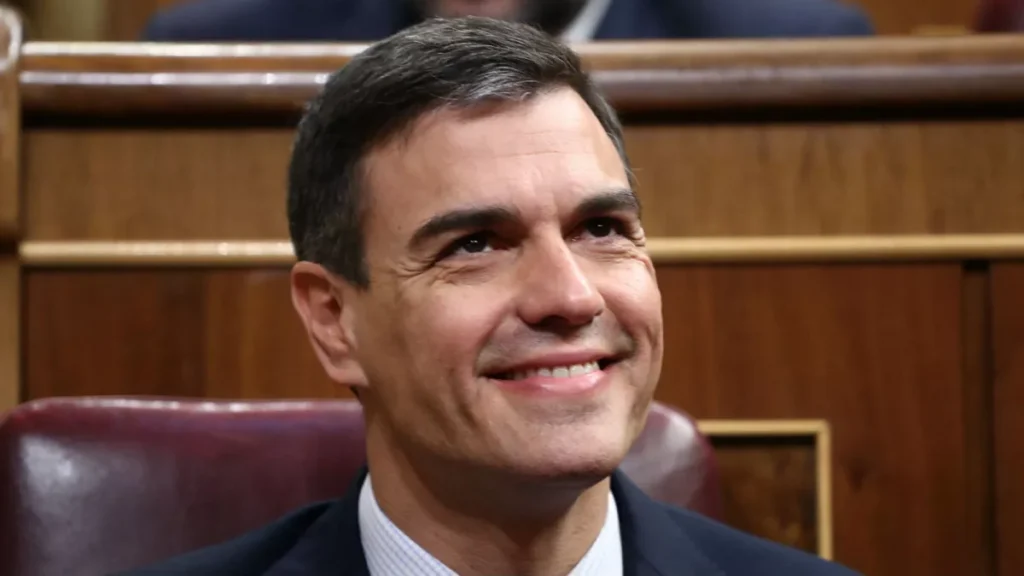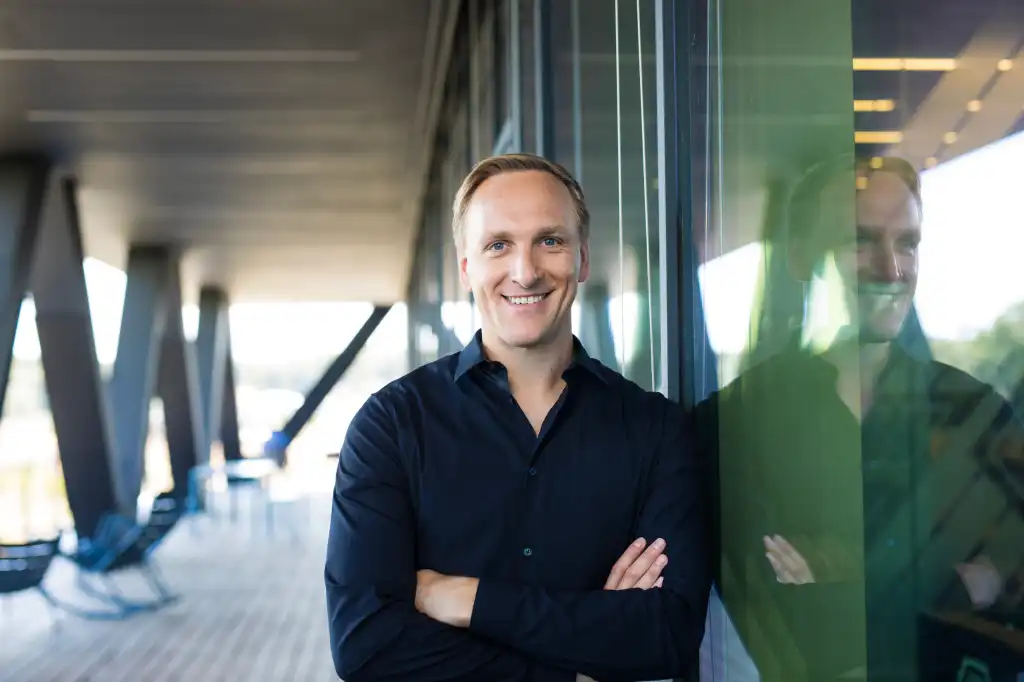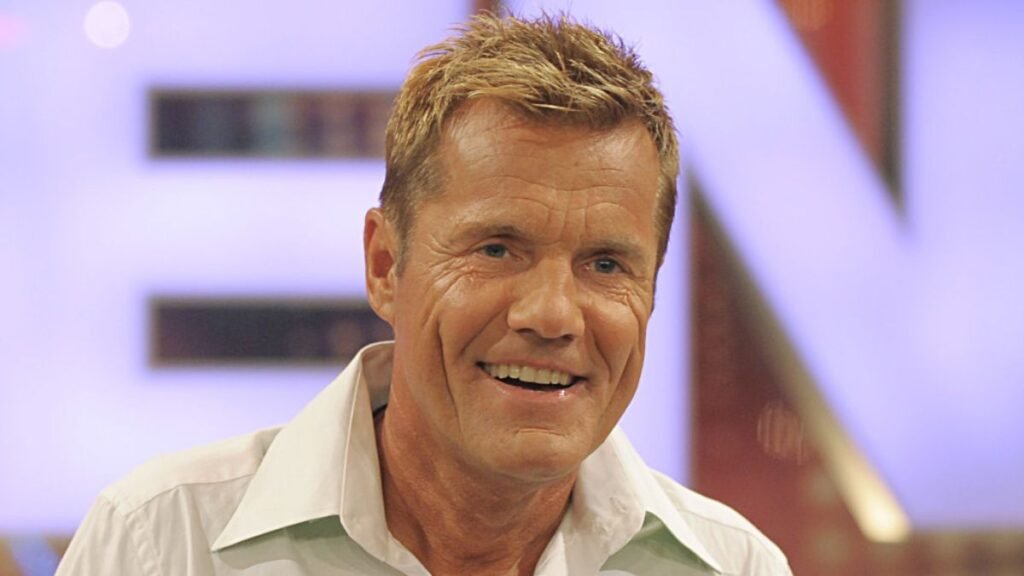Pedro Sánchez is a Spanish politician who has been serving as the Prime Minister of Spain since 2018. He is the leader of the Spanish Socialist Workers’ Party (PSOE). Sánchez is known for his commitment to progressive policies, his role in Spanish and European politics, and his ability to navigate complex political challenges.
In this detailed biography, we will cover Pedro Sánchez’s early life, professional journey, personal life, and achievements. We will also look into his net worth, discussing all the sources of his income.
| Full Name | Pedro Sánchez Pérez-Castejón |
|---|---|
| Born | February 29, 1972, Madrid, Spain |
| Nationality | Spanish |
| Political Party | Spanish Socialist Workers’ Party (PSOE) |
| Occupation | Prime Minister of Spain (since 2018) |
| Spouse | Begoña Gómez Fernández |
| Children | 2 (Ainhoa and Carlota) |
| Education | Complutense University of Madrid, Free University of Brussels |
| Net Worth | €1.5 million (2024) |
Pedro Sánchez’s Net Worth
Pedro Sánchez’s net worth is estimated to be around €1 million to €1.5 million as of 2024. While this may not be as high as some other political figures, his wealth comes from various sources.
| Year | Net Worth (EUR) |
|---|---|
| 2018 | €900,000 |
| 2019 | €1,000,000 |
| 2020 | €1,100,000 |
| 2021 | €1,200,000 |
| 2022 | €1,300,000 |
| 2023 | €1,400,000 |
| 2024 | €1,500,000 |
Sources of Income
- Salary as Prime Minister: As the Prime Minister of Spain, Sánchez earns an annual salary. The Prime Minister’s salary in Spain is around €84,845 per year. This includes additional allowances for official duties and expenses. However, Pedro Sánchez has donated portions of his salary to charity on several occasions, showing his commitment to social causes.
- Parliamentary Salary: Before becoming Prime Minister, Sánchez earned a salary as a Member of Parliament. Members of Parliament in Spain receive an average annual salary of €47,720, depending on their specific roles and responsibilities.
- Book Royalties: In addition to his political career, Pedro Sánchez has authored several books. His most notable work is “Manual de Resistencia”, published in 2019. The book details his political journey, offering insights into his leadership. Book sales have provided Sánchez with an additional source of income.
- Academic Work: Before fully dedicating himself to politics, Pedro Sánchez worked as a lecturer in economics at various universities. Although this is not his primary source of income today, it contributed to his wealth in the early stages of his career.
- Real Estate: Sánchez and his wife own real estate properties, including their family home in Madrid. These properties add to their overall wealth, though they are not primarily used for generating rental income.
Early Life
Pedro Sánchez Pérez-Castejón was born on February 29, 1972, in Madrid, Spain. He grew up in a middle-class family. His father, Pedro Sánchez Sr., worked as an economist, and his mother, Magdalena Pérez-Castejón, was a lawyer.
As a child, Pedro Sánchez was a good student, excelling in school and developing a strong interest in politics. He went on to study at the Complutense University of Madrid, where he earned a degree in Economics and Business Science. This solid academic foundation helped him in his later career as a politician.
After completing his undergraduate degree, Sánchez pursued higher education in other European countries. He earned a Master’s degree in European Economic Policy from Free University of Brussels and later completed a PhD in Economics from Camilo José Cela University. His academic achievements reflect his deep understanding of economics, which has played a significant role in his policy-making.
Professional Life
Pedro Sánchez’s professional life has been marked by his political career, which began early in his life. He first entered politics in the 1990s when he joined the Spanish Socialist Workers’ Party (PSOE). Over the years, he rose through the ranks of the party and became one of the most important figures in Spanish politics.
Early Political Career
In the early 2000s, Sánchez worked as a political adviser to the European Parliament and other organizations. His experience in international politics helped him gain a broader perspective on global issues, which he later applied in his role as a national politician.
In 2004, Sánchez was elected as a Member of Parliament for Madrid. However, his initial time in parliament was short, as he lost his seat in the 2008 general election. But he did not give up. Instead, he used this time to build his political connections and strengthen his position within the PSOE.
Rise to Party Leadership
In 2014, Pedro Sánchez was elected the Secretary-General of the PSOE, making him the leader of one of Spain’s most influential political parties. His leadership style was bold and decisive, and he worked to unify the party during a time of political instability in Spain.
Despite facing challenges, Sánchez’s determination led to a remarkable comeback. In 2016, he stepped down as the leader of the PSOE due to disagreements within the party. However, in 2017, he was re-elected as the party’s leader, showing his resilience and popularity among PSOE members.
Prime Minister of Spain
In June 2018, Pedro Sánchez became the Prime Minister of Spain after a no-confidence vote against the then Prime Minister, Mariano Rajoy. Sánchez became the first person in Spanish history to ascend to the position of Prime Minister through a no-confidence vote. This marked a significant moment in his career and in Spanish politics.
As Prime Minister, Sánchez has focused on progressive policies that address key social issues such as climate change, gender equality, and workers’ rights. His government has worked to improve the Spanish economy, reduce unemployment, and strengthen public services such as healthcare and education.
Second Term as Prime Minister
In November 2019, Pedro Sánchez won another general election, although the results were not strong enough for a single-party majority. He formed a coalition government with Unidas Podemos, a left-wing political party in Spain. His ability to form alliances and work with other political parties has been one of his strengths as a leader.
Achievements as Prime Minister
Pedro Sánchez’s time as Prime Minister has been filled with numerous achievements, especially in areas such as social reform and international diplomacy. Some of his notable achievements include:
- COVID-19 Response: Sánchez’s government took quick action during the COVID-19 pandemic to protect Spanish citizens. They introduced measures such as lockdowns, financial aid, and vaccination programs, helping to minimize the impact of the virus on the country.
- Climate Change Initiatives: His administration has focused on promoting sustainable energy and reducing carbon emissions. Spain has made significant strides toward a greener economy under his leadership.
- Social and Labor Reforms: Sánchez has been a strong advocate for workers’ rights. His government has raised the minimum wage and introduced policies to improve labor conditions for employees across Spain.
- European Leadership: As a European leader, Sánchez has played an important role in shaping the policies of the European Union. He has supported stronger economic ties between EU countries and advocated for a united European approach to global issues like migration and security.
Personal Life
Pedro Sánchez is married to María Begoña Gómez Fernández, a businesswoman and expert in non-profit management. The couple has two daughters, Ainhoa and Carlota.
Despite his demanding political career, Sánchez maintains a close relationship with his family. He is known for being family-oriented and often speaks about the importance of balance between work and personal life.
In his free time, Sánchez enjoys sports. He is particularly passionate about basketball and has played the sport at an amateur level. His interest in sports reflects his belief in maintaining a healthy lifestyle.
Key Challenges and Controversies
Like any political leader, Pedro Sánchez has faced challenges during his time in office. Some of the most notable challenges include:
- Catalan Independence Movement: One of the major challenges Sánchez faced as Prime Minister was the Catalan independence movement. The situation created political instability in Spain, but Sánchez took a diplomatic approach by engaging in dialogue with the Catalan leadership.
- Political Opposition: Sánchez has also faced strong opposition from right-wing parties in Spain, particularly over his progressive policies on immigration and social reforms.
Despite these challenges, Sánchez remains one of the most influential figures in Spanish politics.
Conclusion
Pedro Sánchez is a key figure in Spanish politics with a career that has spanned decades. His journey from a young economist to becoming the Prime Minister of Spain is a testament to his determination and resilience.
His leadership style is marked by a focus on social justice, economic stability, and international cooperation. Sánchez’s net worth may not be as high as some global political leaders, but his wealth is derived from honest work, including his political salary, book royalties, and academic contributions.







